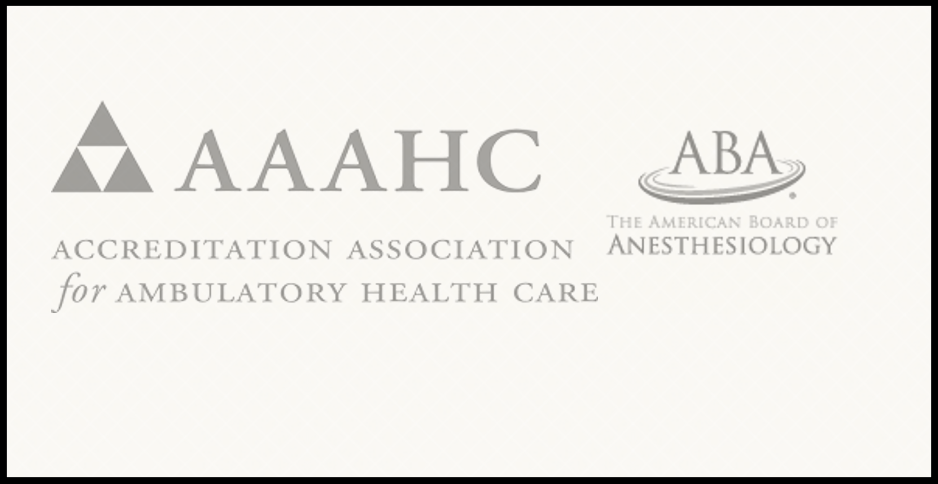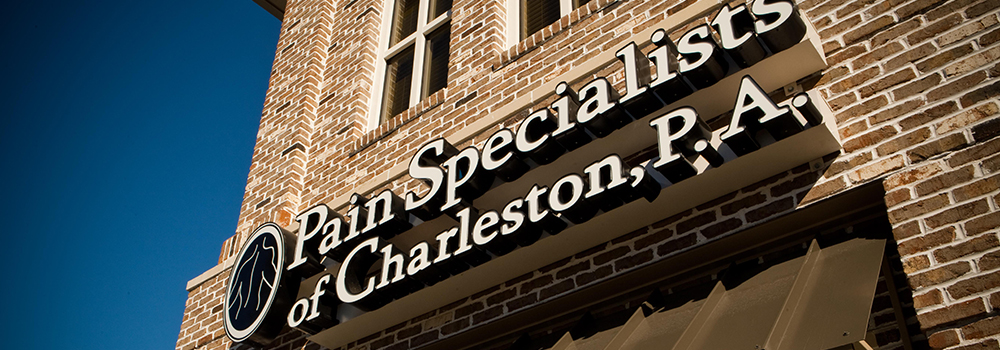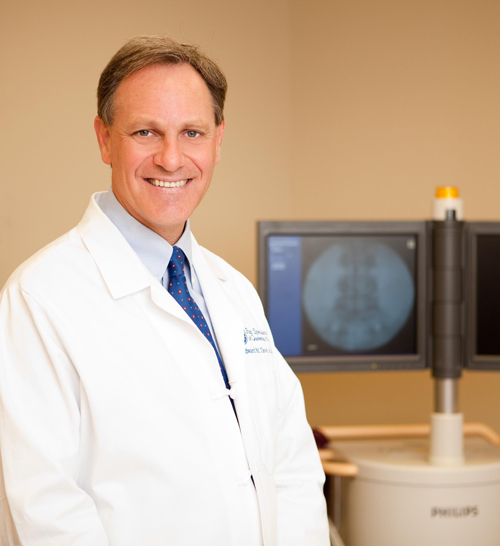Mental Health

Outpatient Mental Health Center
Our mental health encompasses our emotional, psychological, and social wellbeing. It can affect how we feel, think, deal with stress, relate to people, cope with life, and make choices. Mental health conditions are among some of the most common illnesses in the U.S., affecting every one in five adults.
In addition, approximately one in five youth, ages 13 to 18, have either currently or at some point dealt with a mental illness, and approximately one in 25 adults in the U.S. live with a serious mental illness, such as major depression, bipolar disorder, or schizophrenia.
Mental health is important at every age, beginning in childhood to adolescence and throughout adulthood. Mental health issues can impact your life, whether it affects your mood, thinking, or behavior. Our board-certified physicians at Pain Specialists of Charleston are skilled in providing psychological assistance for mental health and are here to support you through this journey.
No Referral Needed — Same Day Appointments — Accepting New Patients
Request Appointment | Meet Pain Doctors | Contact Us | Visit Us
YOUR TRUSTED OUTPATIENT MEDICAL CENTER IN CHARLESTON, SC
Outpatient therapy is an optimal transition option for those who have been receiving inpatient treatment and are ready to receive help to step back into daily life. Outpatient therapy provides greater support than routine therapy sessions at this point in treatment.
At Pain Specialists of Charleston, our mental health programs provide individual therapy and family education to ensure you are able to return to optimal function in your everyday life. Outpatient therapy focuses on group therapy as the primary form of treatment, along with medication.
Our outpatient treatment programs include:
- Comprehensive psychiatric evaluations
- Nursing assessment and psychosocial assessment
- Personalized, long-term treatment plan
To learn more about our outpatient treatment programs, schedule an appointment today. Our team is here to support you.
OUTPATIENT MENTAL HEALTH VS INPATIENT
Outpatient Treatment
- Best For: Those who need support but don’t require inpatient care or who have completed inpatient treatment.
- Location: Patients live in their homes but visit the outpatient center for treatment.
- Duration: A more flexible schedule, allows patients to work, visit family, and maintain daily responsibilities.
- Environment: No full-time supervision. Patients return home after treatment sessions.
- Supervision: No 24-hour supervision. Less intensive than inpatient care.
- Focus: Those who are transitioning from inpatient treatment or those with less severe conditions.
- Detox: Not typically included in outpatient treatment.
- Daily Routine: Provides group therapy sessions and counseling.
- Privacy: Patients can keep treatment private, without having long absences from work or family life.
Inpatient Treatment
- Best For: People with severe addiction or conditions, or those who have relapsed after outpatient care.
- Location: Patients stay full-time at a facility.
- Duration: Lasts a minimum of 28 days.
- Environment: Structured, safe environment, free of negative influences.
- Supervision: 24-hour support, both medically and emotionally.
- Focus: Intensive treatment for serious mental health conditions or addiction.
- Detox: Detoxification is often an included treatment.
- Daily Routine: Full therapy schedule, group meetings, and skill-building activities.
- Community: Patients support each other through a collective, therapeutic community.
- Family Involvement: Family participation is encouraged through education and weekend programs.
Pain Specialists of Charleston offers outpatient mental health treatment only to assist you in better health. If you or a loved one needs emergency aid for mental health struggles, please seek your local hospital for proper medical assistance.
SIGNS & SYMPTOMS
- Changes in eating or sleeping: Excessive eating or sleeping or considerably less than usual.
- Constant low energy: Feeling constantly tired or very low energy.
- Difficulty focusing: Feelings of confusion or forgetfulness
- Feeling helpless or hopeless: Feeling like nothing will get better or that you can’t change anything to make things better.
- Feeling numb: Feeling as if nothing matters or feeling emotionally numb.
- Inability to do daily tasks: Struggling to handle regular responsibilities like work, school, or family.
- Increased use of substances: Smoking, drinking, or using drugs more than usual.
- Mood swings: Intense changes in mood that affect relationships.
- Physical pain: Experiencing unexplained aches and pains.
- Pulling away from others: Avoiding relationships with friends, family, or usual activities.
- Self-harm or harm to others: Having thoughts about hurting yourself or others.
- Severe conflicts: Yelling or fighting with loved ones.
- Strange beliefs or voices: Hearing voices or believing things that are not true.
- Unwanted thoughts: Persistent memories or unwanted thoughts that won’t go away.
COMMON MENTAL HEALTH CONCERNS
- Antisocial personality disorder: A consistent pattern of ignoring social rules or others’ rights.
- Anxiety disorders: Experiencing constant fear or worry, can include panic attacks or fear of social situations.
- Attention-deficit hyperactivity disorder (ADHD): Difficulty focusing, sitting still, or staying organized.
- Bipolar disorder: Extreme mood swings, from very high to very low.
- Borderline personality disorder (BPD): Unstable moods, relationships, and self-image, often accompanied by intense emotions.
- Depression: Persistent sadness, very low energy, and loss of interest in regular activities.
- Dissociation and dissociative disorders: Feeling disconnected from yourself or the world, often a response to trauma.
- Eating disorders: Unhealthy focus on weight, body shape, or eating, such as Anorexia, Bulimia, or binge eating.
- Obsessive-compulsive disorder (OCD): Repeated unwanted thoughts and actions/compulsions to help ease anxiety.
- Paranoia: Mistrust of others or suspicion without cause or reason.
- Post-traumatic stress disorder (PTSD): Severe stress, anxiety, and flashbacks after experiencing or witnessing a traumatic event.
- Psychosis: The loss of touch with reality, can lead to delusions or hallucinations.
- Schizophrenia: A disorder affecting thinking, emotions, behavior, and motivation, often involving delusions, hallucinations, or disorganized speech.
- Seasonal affective disorder (SAD): Depression occurs during specific seasons, most often in winter.
- Self-harm: Harming yourself on purpose as a way to cope with mental and emotional pain.
- Suicide and suicidal behavior: Thoughts or actions about ending one’s own life.
Some common symptoms may include:
- Mood changes: Rapid or dramatic changes in emotions, depression, or irritability.
- Sleep or appetite changes: Significant changes in sleep or appetite.
- Social withdrawal: Pulling away from regular social activities and loss of interest in previously enjoyed activities.

WHEN TO SEE A DOCTOR
Seek help from a professional if you are experiencing distressing or severe symptoms lasting two weeks or more, including:
- Difficulty sleeping
- Changes in appetite
- Unplanned weight changes
- Difficulty getting out of bed in the morning due to poor mood
- Difficulty concentrating
- Loss of interest in things you usually enjoy
- Inability to complete regular tasks and activities
- Feelings of irritability, frustration, or restlessness
Please speak with someone you trust or a health professional when you’re feeling unable to cope with problems or daily activities. If you’re seeking mental health treatment in Charleston, SC, Pain Specialists of Charleston is available 5 days a week. No referral needed!
Request Appointment | Contact Us | Meet Pain Doctors
CAUSES
Mental illness does not have one single cause, but many factors can contribute to the risk level for developing mental illness. These factors can include:
- Adverse childhood experiences, such as trauma or a history of abuse, including child abuse, sexual assault, witnessing violence, etc.
- Experiences related to other chronic medical conditions, such as a traumatic brain injury, cancer, or diabetes.
- Biological factors or chemical imbalances in the brain
- Alcohol or drug use
- Feelings of loneliness or isolation
RISK FACTORS
- Family history of mental illness in a blood relative, such as a parent or sibling
- Stressful or traumatic life situations, such as financial problems, a loved one’s death, or a divorce
- Chronic medical condition
- Brain damage as a result of a serious injury, such as a violent blow to the head
- Traumatic experiences, such as military combat or assault
- Alcohol or recreational drug use
- A history of childhood abuse or neglect
- A low number of friends or healthy relationships
- A previous mental illness
DIAGNOSIS
Physical & Psychological Examination: At Pain Specialists of Charleston, your first visit will include a thorough evaluation that includes your medical history and a physical examination pertinent to your mental and physical pain.
This comprehensive visit with your pain specialist will last approximately 30 minutes.

TREATMENT
At Pain Specialists of Charleston, our outpatient mental health facility offers treatment in the form of:
- Individualized psychiatric care
- Speech therapy
- Psychology assistance
- Anger management
- Cognitive therapy
- Communication skills
- Coping skills
- Goal setting
- Interpersonal skills
- Medication education
- Mindfulness meditation
- Problem solving
- Relapse prevention
- Relationship coaching
- Relaxation therapy
- Self-esteem/self-image improvement
- Time management
- & more.
TIPS FOR MANAGING YOUR MENTAL HEALTH DAILY
- Develop coping skills: Adopt healthy tactics for handling stress to make life easier.
- Get enough sleep: Good sleep helps boost your mood, brain function, and health. Lack of sleep can make anxiety and depression symptoms worse.
- Keep your doctor informed: Stay in contact with your primary care physician, even if you’re regularly seeing a psychiatrist.
- Learn about your condition: Better understanding your mental health can help you follow your treatment and help others learn how to be more supportive of your condition.
- Practice good self-care: Work on managing stress through meditation, exercising, eating well, and making sure you get enough sleep.
- Reach out to family and friends: Keep in touch with your friends and loved ones and ask for their help when dealing with tough times.
- Stick to your treatment plan: Continue going to therapy and taking your prescribed medications, even when you begin to feel better. Always speak with your doctor first before making changes.
MEET DOCTOR EDWARD M. TAVEL, JR., MD
- Over 20+ Years of Specialty Training
- Double-Board Certified in Anesthesiology and Pain Management
AWARDS & ASSOCIATIONS

AS SEEN ON


WHY CHOOSE US
At Pain Specialists of Charleston, we strive to provide an unmatched healthcare experience when it comes to helping you manage your mental health. With this goal, we prioritize the following:
Compassionate and Comprehensive Care
Our practice takes a multidisciplinary approach to mental health care that puts patients first. We’re proud to offer a full range of mental health programs, including individualized psychiatric care, speech therapy, psychology assistance, anger management, cognitive therapy, communication skills, coping skills, and more.
Timely Treatment
We’re committed to scheduling appointments as quickly as possible to best support your mental health. This ensures the speedy start of a treatment plan to address your symptoms.
Access to Safe Mental Health Care
Pain Specialists of Charleston offers a higher level of healthcare, performing all interventional procedures to meet strict standards and rigorously comply with all FDA, CDC, state, and federal medical safety guidelines.
Quality Care
Our providers are not only prominent leaders in the field of mental health, but advocates for the Charleston, SC patients we so proudly serve. It’s our exceptional care that sets us apart and earns our patients’ trust.
Request Appointment | Meet Pain Doctors | Contact Us | Visit Us
FAQS
IS MEDICATION OR THERAPY BETTER FOR MENTAL HEALTH?
Mental health treatment can vary greatly depending on your individual needs. Research has shown that psychotherapy can be more effective than medication. Many individuals show the most positive results by working through a treatment plan that includes a variety of coping skills and a support system to help them through the healing and recovery process.
For outpatient mental health support, Pain Specialists of Charleston offers mental health treatment that will help you continue your daily tasks with the help of a certified medical team. From anxiety, depression, and additional mental health disorders, we can help. No referral required!
HOW COMMON ARE MENTAL HEALTH ISSUES?
Anyone can be affected by mental health issues.
In 2020, one in five adults in the U.S. had experienced a mental health condition within a given year, and one in six young people experienced a major depressive episode in adulthood. One in 20 people in the U.S. have been diagnosed with a serious mental illness, such as bipolar disorder, major depression, or schizophrenia. For people ages 10 to 24, suicide was the second leading cause of death in the U.S.
CAN LOVED ONES WITH MENTAL HEALTH CONCERNS TRULY RECOVER?
Yes, recovery is possible. Studies show people with mental health issues can get better and many are on an effective path to recovery.
Those who are impacted by mental health conditions are offered support through proper diagnosis, treatment, prevention, and recovery. The healthcare industry has grown in recent years to provide more services, treatment, and greater community support for those with mental health issues.
CAN FAMILIES AND FRIENDS HELP A LOVED ONE STRUGGLING WITH THEIR MENTAL HEALTH?
Friends and family can make a big difference when it comes to a loved one’s mental health battle. Family and friends can be important influences and provide the necessary support to help someone receive the treatment and services they need by:
- Reaching out and letting them know you are here to help
- Helping them find access to mental health services
- Assist in learning self-care and coping techniques
- Sharing facts about mental health, especially busting myths that you find out are not true
- Always treating them with respect and support
- Refusing to define them by their diagnosis, instead use person-first language
For outpatient mental health support, Pain Specialists of Charleston offers mental treatment to help you improve your mental state and continue with your daily life and activities with the help of a certified medical team. From anxiety, depression, and additional mental health disorders, we can help. No referral required!
ARE PEOPLE WITH MENTAL HEALTH TROUBLES MORE VIOLENT?
This is not true.
People with mental health conditions are no more likely to be violent than anyone else. Only approximately 3% to 5% of violent acts can be attributed to someone living with a serious mental illness. People who deal with severe mental illness are more than 10 times more likely to become victims of a violent crime. Many people with mental conditions are productive members of the community, and you likely don’t even know they have a mental health condition.
IS THERE ANY PREVENTION FOR MENTAL HEALTH STRUGGLES?
Prevention of mental, emotional, and behavioral disorders focuses on addressing risk factors, like exposure to trauma, which can affect the chances of developing a mental health condition.
Mental health practitioners will work to promote a person’s social and emotional wellbeing. This can lead to:
- Higher overall productivity
- Better educational outcomes
- Lower crime rates
- Stronger economies
- Improved quality of life
- Increased lifespan
- Improved family life
ARE PEOPLE STRUGGLING WITH THEIR MENTAL HEALTH LESS PRODUCTIVE EMPLOYEES AT WORK?
Those with mental health conditions are not any less productive than other employees, especially when they’re able to manage their condition well.
Oftentimes, employers don’t know if an employee has a mental health condition, and if they do know, employers often report good attendance, punctuality, motivation, and tenure that is the same as – if not better – than employees who have not reported having a mental condition.
ARE PEOPLE WITH MENTAL HEALTH CONCERNS MORE WEAK-MINDED?
Absolutely not!
Mental health conditions do not equate to being lazy or weak. Seeking help for a mental condition is needed for many to get better. Factors that can contribute to mental health conditions are:
- Biological factors, such as genes, physical illness, injury, or brain chemistry
- Life experiences, such as trauma or a history of abuse
- Family history of mental health conditions
WHAT IS MENTAL HEALTH?
Mental health encompasses our emotional, psychological, and social well-being and affects how we feel, think, and act. Our mental health can impact how we handle stress, make choices, and relate to those around us. At every stage of life, your mental health matters.
WHAT ARE THE KEY DIFFERENCES BETWEEN AN INPATIENT AND OUTPATIENT MENTAL HEALTH CENTER?
Key differences of inpatient versus outpatient mental health treatment include:
- Living Arrangements:
- Outpatient: Live at home
- Inpatient: Live at the facility
- Supervision:
- Outpatient: No constant supervision
- Inpatient: 24-hour care
- Flexibility:
- Outpatient allows more freedom for work, family, and home life
- Inpatient requires full-time commitment
- Intensity:
- Outpatient is less intense and provides more flexibility
- Inpatient is more intense and structured
HOW DOES MENTAL ILLNESS IMPACT A PERSON’S LIFE?
A mental health condition can impact how a person feels, thinks, and behaves. It can also impact you physically, including your energy levels, appetite, weight, or physical pains. Being diagnosed with a mental illness may cause feelings of grief, loss, fear, and being overwhelmed.
WHAT HAPPENS DURING YOUR FIRST APPOINTMENT AT PAIN SPECIALISTS OF CHARLESTON?
At Pain Specialists of Charleston, we perform a thorough evaluation to better understand your needs and determine the best course of treatment to help you reclaim your quality of life. What should I bring?
ARE YOU ACCEPT NEW PATIENTS?
Yes. Our mental health team is accepting new patients, so call today or request an appointment online.
DOES PAIN SPECIALISTS OF CHARLESTON REQUIRE A REFERRAL?
No referral is needed! We accept self-made appointments and referral appointments to begin helping you when you need it most. Simply, reach us five days a week to get scheduled. Schedule your first appointment today!
DOES PAIN SPECIALISTS OF CHARLESTON OFFER SAME DAY APPOINTMENTS?
Yes, Pain Specialists of Charleston does offer same day appointments!
We’re open five days a week, so we can get you in to see our board-certified mental health practitioners within the same day of contacting us if slots are available. Reach us today to see open availability!
Sources: Mental Health and Mental Disorders (U.S. Department of Health and Human Services), What is Mental Health (Substance Abuse and Mental Health Administration), About Mental Health (CDC) & National Institution of Mental Health.

